As a functional medicine practitioner, I frequently encounter clients concerned about unexplained weight gain, hair loss, fatigue, and a range of other symptoms that point to a possible thyroid imbalance. The thyroid gland plays a vital role in regulating your metabolism, energy levels, and overall well-being, so it’s natural to wonder if these symptoms could be thyroid-related. If you’ve been experiencing these challenges and wondering if it’s your thyroid, let’s dive in and see if you can find some answers.
Is My Weight Gain, Hair Loss, and Other Symptoms Because of My Thyroid?
Many factors can contribute to weight gain, hair loss, and fatigue, but the thyroid is often a key player in these issues. The thyroid, a butterfly-shaped gland in your neck, produces hormones—mainly thyroxine (T4) and triiodothyronine (T3)—that regulate metabolism, energy, and growth. When your thyroid doesn’t function properly, it can throw your entire body out of balance.
Hypothyroidism (an underactive thyroid) is one of the most common causes of weight gain and hair loss. If your thyroid is producing too little thyroid hormone, your metabolism slows down. This leads to weight gain, especially around the abdomen, along with dry skin, brittle hair, and fatigue. Additionally, hypothyroidism can make it hard to lose weight despite diet and exercise efforts.
Hyperthyroidism (an overactive thyroid), on the other hand, can lead to weight loss, although it may also cause hair thinning, irritability, and an elevated heart rate. While weight loss might seem like a positive symptom, hyperthyroidism can have detrimental effects on your overall health, including muscle wasting and heart problems.
Other thyroid-related symptoms include:
- Constipation or diarrhea
- Mood swings, anxiety, or depression
- Irregular menstrual cycles
- Sensitivity to cold or heat
- Brain fog or difficulty concentrating
It’s important to remember that these symptoms could also arise from other conditions like stress, nutrient deficiencies, other hormonal imbalances, or autoimmune issues. However, the thyroid should be considered, especially when these symptoms persist despite your efforts to address them.
How Do I Know If I Have a Thyroid Problem?
If you’re wondering whether your thyroid is the culprit, the first step is to get a comprehensive evaluation, starting with a thorough history of your symptoms and lifestyle. Here are some steps to take:
a. Track Your Symptoms
Keep a detailed log of your symptoms, noting when they started, how they fluctuate, and if there’s any pattern, such as worsening during stress or certain times of the month. This can help pinpoint whether your thyroid is likely involved.
b. Blood Tests
A standard blood test can give a lot of information about your thyroid function. Here are the key markers to evaluate:
- TSH (Thyroid Stimulating Hormone): This is often the first marker doctors check. A high TSH indicates hypothyroidism, while a low TSH suggests hyperthyroidism. However, TSH alone doesn’t tell the full story.
- Free T4 and Free T3: These measure the actual thyroid hormones circulating in your blood. Low levels of Free T4 and T3 point to hypothyroidism, while high levels indicate hyperthyroidism.
- Thyroid Antibodies: These tests (TPO and TG antibodies) can check for autoimmune thyroid conditions like Hashimoto’s thyroiditis or Graves’ disease. In these cases, your immune system mistakenly attacks your thyroid, causing dysfunction.
- Reverse T3: This is another important but often overlooked marker. It can help determine if stress, chronic illness, or inflammation is affecting your thyroid function.
c. Physical Examination
Your healthcare provider will also likely perform a physical exam, including palpating the thyroid gland for any enlargement or nodules, which may require further imaging like an ultrasound.
d. Basal Body Temperature
An older, but still useful method is to monitor your basal body temperature (BBT) upon waking. Consistently low BBT can suggest hypothyroidism, as a slower metabolism lowers your body’s ability to generate heat.
Thyroid issues show up in roughly 15% of adults which is more common than you might expect. While the above information may help with a diagnosis, we know that there are “sub-clinical” cases in which numbers don’t always tell the full story of your thyroid’s function. We know that disease and dis-ease are usually not just symptoms occurring in isolation. It’s important to not only look at your thyroid, but all of the parts and pieces that play together.
Functional nutritionists and functional practitioners, like myself, will always be looking at all factors that may affect thyroid function like:
- Factors that inhibit proper production of thyroid hormones.
- Factors that increase conversion of T4 to RT3.
- Factors that contribute to the proper production of thyroid hormones.
- Factors that increase conversion of T4 to T3.
- Factors that improve cellular sensitivity to thyroid hormones.
Looking at these factors can help to determine the root cause of your symptoms.
What Are the Thyroid Issues That I Could Have?
Several thyroid conditions could be contributing to your symptoms. Understanding the various possibilities is important for determining the right approach.
a. Hypothyroidism (Underactive Thyroid)
This is the most common thyroid disorder, affecting millions of people globally. In hypothyroidism, the thyroid gland doesn’t produce enough thyroid hormones, leading to a sluggish metabolism, weight gain, and hair loss, among other symptoms. Common causes include:
- Hashimoto’s Thyroiditis: This autoimmune condition is the leading cause of hypothyroidism and involves the body’s immune system attacking the thyroid.
- Iodine Deficiency: While less common in areas where iodized salt is used, iodine deficiency can still lead to hypothyroidism.
- Medications or Treatments: Certain medications (like lithium or antithyroid drugs) or treatments (such as radiation) can affect thyroid function.
b. Hyperthyroidism (Overactive Thyroid)
In this condition, the thyroid produces too much thyroid hormone, leading to an overactive metabolism, weight loss, anxiety, and hair thinning. Common causes include:
- Graves’ Disease: Another autoimmune condition, Graves’ disease causes the immune system to stimulate the thyroid to produce excess hormones.
- Toxic Nodules: Sometimes, small lumps (nodules) in the thyroid produce excessive thyroid hormone, leading to hyperthyroidism.
c. Thyroid Nodules and Goiter
Thyroid nodules are lumps that can develop in the thyroid gland. While most nodules are benign, some may produce thyroid hormones and contribute to hyperthyroidism. A goiter is an enlargement of the thyroid, which can occur in both hypo- and hyperthyroidism.
d. Thyroid Cancer
While relatively rare, thyroid cancer can present with a lump in the neck, difficulty swallowing, or voice changes. It’s typically slow-growing and treatable, especially when detected early.
Can I Heal My Thyroid?
The good news is that many thyroid issues can be managed, and in some cases, improved or even reversed, especially when addressed through a functional medicine approach. Here’s how you can support your thyroid health:
a. Nutritional Support
- Iodine: This is essential for thyroid hormone production, but it’s a delicate balance—too much or too little iodine can disrupt thyroid function. If you have an iodine deficiency, foods like seaweed, iodized salt, or supplements may help, but it’s important to test iodine levels before supplementation.
- Selenium: Selenium is another crucial nutrient for thyroid health, as it helps convert T4 into the more active T3 hormone. Brazil nuts, sardines, and sunflower seeds are great sources of selenium.
- Zinc and Iron: Both of these nutrients are critical for thyroid hormone synthesis. Deficiencies can exacerbate hypothyroidism.
- Gluten-Free Diet: For those with autoimmune thyroid issues like Hashimoto’s, removing gluten can reduce inflammation and alleviate symptoms, as gluten can trigger immune responses in sensitive individuals.
- Botanicals: Ashwagandha can be very beneficial with thyroid dysfunction. A 2018 pilot study compared the benefits of ashwagandha root extract in subclinical hypothyroid patients to a placebo group. Results of this study showed an improved serum TSH and T4 at the end of treatment compared to placebo, with few mild and temporary adverse effects.
b. Addressing Inflammation and Autoimmunity
If an autoimmune condition is causing your thyroid problems, it’s important to address the root causes of immune dysfunction. This can include gut healing protocols, reducing environmental toxin exposure, and managing stress.
c. Lifestyle Changes
- Stress Management: Chronic stress can disrupt thyroid function by elevating cortisol levels, which interfere with hormone conversion and increase reverse T3 levels. Practices like meditation, yoga, or regular exercise can help manage stress.
- Sleep Optimization: Good sleep hygiene is essential for hormone regulation. Aim for 7-9 hours of restful sleep per night to support your thyroid.
- Exercise: Moderate, regular exercise can improve thyroid function, boost metabolism, and reduce stress. Be mindful not to overdo it, as excessive exercise can exacerbate thyroid issues, especially in hyperthyroidism.
d. Medication and Hormonal Support
In cases of diagnosed hypothyroidism, particularly Hashimoto’s, thyroid hormone replacement therapy may be necessary. However, functional medicine focuses on optimizing the dose and addressing underlying imbalances that contribute to thyroid dysfunction. Many people find that by addressing root causes, they can reduce their medication over time.
Thyroid health is a complex and integral part of your overall well-being. If you’re experiencing symptoms like weight gain, hair loss, or fatigue, your thyroid could indeed be playing a role. By taking a comprehensive approach—including proper testing, addressing nutritional deficiencies, and making lifestyle changes—you can support your thyroid and restore balance to your body. Healing your thyroid is possible, but it requires addressing the underlying causes and making sustainable changes to your health.
Other resources:
https://www.rupahealth.com/post/understanding-hypothyroidism-and-how-to-treat-it-naturally






